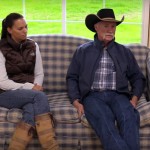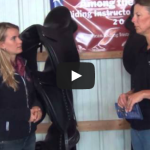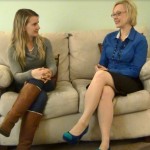Last month I hosted a clinic at my farm – it was a clinic teaching equine assisted psychotherapy. I didn’t know what to expect, I was just hosting the event, but I looked forward to learning a few things that I thought might help me with my riding students.
By the end of the weekend, I had so many new insights into my interactions with others – people and horses, and discovered principles that shifted how I thought about training.
The instructors of this clinic were Tim Jobe and Gabby Rivette of Natural Lifemanship, a model of equine assisted psychotherapy that uses the relationship between a client and a horse as a foundation for the therapy they provide.
What can a model of therapy that uses horses and develops relationship skills teach us about training? Well, as I discovered at the Natural Lifemanship Clinic, training can build that great relationship. Here’s why this is so important:
Relationships shape our world. There is our relationship with ourself, our family, friends, teachers, and co-workers. There are relationships with our pets and our horses. Every creature with a developed limbic system of the brain values relationship. They connect us, inspire us to do good, and help us feel happy and safe.
A good relationship makes us want to do right by the other person, the happiness of the other person becomes our reinforcement and the principles of good relationships help guide us through normal pressures.
A healthy relationship with our horse can be similar to our relationships with other people. We communicate requests, they choose how to respond, and we react to that response. The outcome of this sequence will end up strengthening or weakening our relationship.
With this understanding, training is no different than relationship building. Both sides have needs, both sides have requests, and we both have to make sure our requests are reasonable and that we set boundaries wherever we are uncomfortable.
Watch the interview below to hear Tim and Gabby share the principles of a good relationship and why it matters for our work with our horses. (Plus they have a unique way of talking about “control” – watch the video to learn more. )
[Tweet “If it’s not good for both of us, it’s eventually not good for either one of us.” Tim Jobe, Natural Lifemanship”]
For more information on Natural Lifemanship visit their website: www.naturallifemanship.com
I look forward to reading your comments!
Callie













22 Responses
I’m not sure I buy the “taking the horse to a whole new level” language. I believe that horses in their herd have social structures for competition as well as collaboration. Just watch horses play or groom each other, and you can see that they don’t need humans to have mutually beneficial interactions, without the stress of jostling for position. On the flip side, there is a mechanism with which horses figure out whom they can trust as a leader. As humans, we have to emulate this, so the horse trusts us to keep it safe. It can’t read our resumes of keeping other horses safe, so we have to act in a way that it interprets as “strong and competent” leader. I don’t have my own horse, but in my interactions with horses, I try to inspire confidence in me (through calm mind and body and clear aids) as well as become a source of comfort for the horse (through grooming, petting, scratching, treats, soft body language, etc.)
Just to show I’m not just talking in the abstract: My lesson horse comes to me and grazes beside me when I show up early for my lesson, even though I don’t come with treat bribes. (I show up early for the express purpose of just hanging out for a while.) This past June, I went on a 5-hour trail ride in Iceland for “upper intermediate” riders. When it came to crossing a small stream, my horse went in before the guide’s and took the lead for the entire group even though I only nudged it ahead very gently. If it hadn’t been for my half-halts, it would have passed the guide’s horse several times when we were cantering. (I finally let him pass… I truly felt as though my little Icey not only trusted me, but had as much fun as I did on that ride.
I truly felt as though my little Icey not only trusted me, but had as much fun as I did on that ride.
Very nice interview Callie. As you know, I am doing some work with my leased horse Gretel at liberty, focusing on our relationship where she has the freedom to come to me or to go away…in just several weeks, I think our bond has gotten stronger. In addition, I have spent some time just grooming her and giving her a bit of massage. She seems to enjoy both. I can see that having a wonderful relationship with a horse can inspire both horse and human to give more and to be better and to ultimately be a good team. This will definitely help us in our relationships with humans.
Thank you for an interesting and thought-provoking video.
Nancy
I think this segment was excellent and reinforced a book I read by a Native American former horse trainer. The name of the book is “Horse, Follow Closely” by GaWaNi Ponyboy. The principles in that book are quite similar to the information presented by Callie’s guest here. The Native Americans had no trainers. They and their horses built “relationships” It took quite a while for my horses that I have had now for a little over 3 years to truly bond with me and it is still a work in progress (probably always will be) These horses were both trail horses for most of their lived so they truly never in my opinion got to bound with anyone. I’m pretty sure my Paint was a “lead” horse because she is much more responses to cues and trusted me much quicker than my Quarter horse I am positive was a “follower” if used at all. He has gained trust with me but has behaviors that keep me from letting anyone else even mount him yet. I know for personal safety purposes their has to be somewhat of a hierarchy but I have used some of the suggestions that the book I mentioned earlier (one example, just sitting in the pasture, asking nothing, and sort of being part of the herd). Doing just this HAS made a positive difference in our trust/relationship with one another. I, for one, am going to delve further study into this theory and put it into practice. BTW Callie. I always hated science unless it was something I was interested in like learning about what’s going into my flower beds and how to care for it, the weather, and my horses. There are also a few other things but I rambled enough. Thank you for more on this insight and the knowledge that people are getting back “to the roots” of true horsemanship!
Please excuse my typos..I am serious eye troubles. Thank you!
Thank you!
I have changed a lot about how I relate to my horses since attending this clinic. One of the most basic, is that when I retrieve my horse from the meadow or stall, I ask my horse to acknowledge me, as if to say, “Yes, I am ready to go to work today too.” In the past, I would have put the halter on mid-bite, (if I had to) , because dog-gone it, we had a job to do! Now I approach my horses with more respect, understanding that we are equal partners in the work we do. If they are given the chance to connect with me on their own, I often see a more willing and fully engaged horse. Since I have begun approaching our day this way, they seem more able to “read” and connect with the folks who are working with them.
Hmmmm “unique” is an interesting word to describe what they do. Guess you had to be there.
Thank you for sharing
I work with horses in my therapy with clients and love the connections explained in this interview between building a relationship with horses and human relationships.
Keep up the great work
Sending love from New Zealand
Sarah Jones
I’m finding this totally fascinating. I’ve been immersed in EGE, Equine Guided Education, for about the past 6 years, and it’s made a huge difference in my life for the better. I don’t have a therapist working directly with us, though the three of us humans communicate with each other, and my therapist has visited several times with me and the horses and my EGE facilitator. My therapist has wanted to know more about the scientific part of it, and that’s been a little hard because I just feel the “magic” of it, but clearly, it works.
Yes, relationship is a big part of it. For me, feeling a connection with a horse is super powerful, and the things that can be done and felt through connections with horses are amazing to me.
I’m not sure it’s a problem to see a horse as a metaphor for something. I’ve probably done this, and I may have been doing it lately watching Callie’s latest training video with Raleigh. I see a lot of myself in Raleigh, and then I see Callie helping Raleigh. I’m not sure if that is seeing Raleigh as a metaphor. I live in Alaska; Callie and Raleigh live in PA, but I did get to spend some actual time with him and have a momentary relationship with him when I visited there in March, and that was special to me. After hearing that in the video, I may want to explore more about it.
Doing things together with a horse, not just imposing our will on a horse; that’s so important to enjoying the relationship and to enjoying riding and spending time with the horses, at least for me it is. I have ridden horses before where all I did was to get on the horse and sit on it while it followed the other horses during a guided trail ride. That was fun, but it didn’t have the joy in it that feeling a relationship with a horse has. Now, after 6 years of EGE, with an emphasis on “relationship first,” I can go on guided trail rides and feel that I am actually communicating with the horse I’m riding, and that makes it feel good to me in a meaningful way.
I definitely have been learning more about relationships with people, including myself, through EGE. Horses can really teach a lot of this kind of thing, especially, for me, through guided facilitation.
That felt like an important thing to me to hear what Gabby and Tim said about about control. Thinking this through as I type it (something my EGE facilitator has encouraged me to do), it does, on first thought, seem like we do need to have some “control” over a horse so we don’t accidentally get physically hurt, but then the following thought I have is that the “control” really does come from us, or me, actually. Learning how to have that self-control is one big thing to learn in EGE, for me. I hadn’t really thought of it in terms of the phrase “self-control,” but that phrase could be a way to think of it.
I loved the video. Thank you Callie and Tim and Gabby and the horses.
One thing I’m not sure about that I heard is that horses are just dominant or not dominant with each other. Maybe it’s because I misunderstood it, but I do believe, from what I’ve seen in my 6 years of visiting horses during EGE, they do have richer relationships with each other than that. I do believe they have a different way of relating and interacting with us as humans, since clearly, we are two different species.
Again, thank you for the video. I’ve only watched it once so far. I’ll probably watch it again later.
I’ve gotten to watch Carol’s journey over the 6 or so years she’s been coming here to learn what my horses teach. (I’m not a therapist, but I support self-learning of relationship-first ways of being with horses.) I’m so proud to see the wisdom, awareness, and self-responsibility reflected in her comments, because they’re reflections of what she’s learned through relationship-first-based interactions with four very different horses. I see her applying in so many other arenas (no pun intended) what she’s discovered and practiced here with the herd, and most of those other arenas have nothing to do with horses.
Recognizing that both we, ourselves, and the “others” with whom we interact–whether horse or human–should feel comfortable, safe, successful, even joyous as a result of sharing time, space, and energy sure alters one’s sense of what constitutes fair treatment (to self and others) and changes how much mindful attention and real “listening” we’re willing to practice in order to hear/feel what’s being communicated in each shared moment.
And I agree with Carol that the interactions observed in a stable, unstressed herd of horses who are allowed to move freely throughout a safe but stimulating environment show a wonderful diversity and range of positive emotional connections among different animals.
Thank you so much for your comment Carol! It was beautifully written and thoughtful. I hope you will get to meet Raleigh here again someday I don’t think he is going anywhere in the near future.
I don’t think he is going anywhere in the near future.
You’re welcome, Callie. I appreciate Devony’s reply, also, and I give her credit for encouraging me, allowing me, to open up my thoughts, based on my feelings, especially about horses, through writing about them.
Most interesting, and I like the concept. When I worked in a mixed medical/education team for the benefit of youngsters with ADHD, Dyspraxia, Autism etc, I remember well the idea that children (and adults) who couldn’t control themselves sought to control their environment. Including of course – others.
Carol, re the dominant/not dominant relationships horses have/don’t have, I agree that I’m uncertain. Partly through personal observations of herds but more especially through the work done by Equestrian Scientists (Andrew McLean, Paul Mcgeevy and others) and ISES.
Thankyou for that
That’s so interesting what you said, Georgie, about people seeking to control their environment because it might seem to them that’s easier than controlling themselves.
I am beginner rider in Istanbul, only had 4 riding lessons. I am still trying to find a good instructor that I feel harmonious with. I am a psychiatrist and I decided to start riding after one of my patients looked to me like a little wild but frisky colt with an amazing potential. And I didnt know what to do with her. And I kept falling off:). Oddly enough she keeps coming back:). So I thought learning to ride would help me and therefore help my patients to gain more balance and harmony in our sense of connection with ourselves and with others. It already started to teach me a lot about myself. And one more thing, I think Callie knows more about therapy more than she thinks and more than many therapists probabaly:)
A really fascinating interview – I so wish I was able to attend these clinics (Australia is a long way off) . I am 52 and have recently purchased my first horse. Whilst I am enjoying learning to ride, i also have this desire to just ‘be’ with Sweeney. I like to have days where I just groom him or sit with him – I feel it is important to have time where I am not asking or expecting anything of him. It’s early days but I feel we are understanding each other more and more and that he also appreciates together time. I hope this will continue to evolve after I bring him home (he is currently agisted) ………. I look forward to exploring this relationship further.